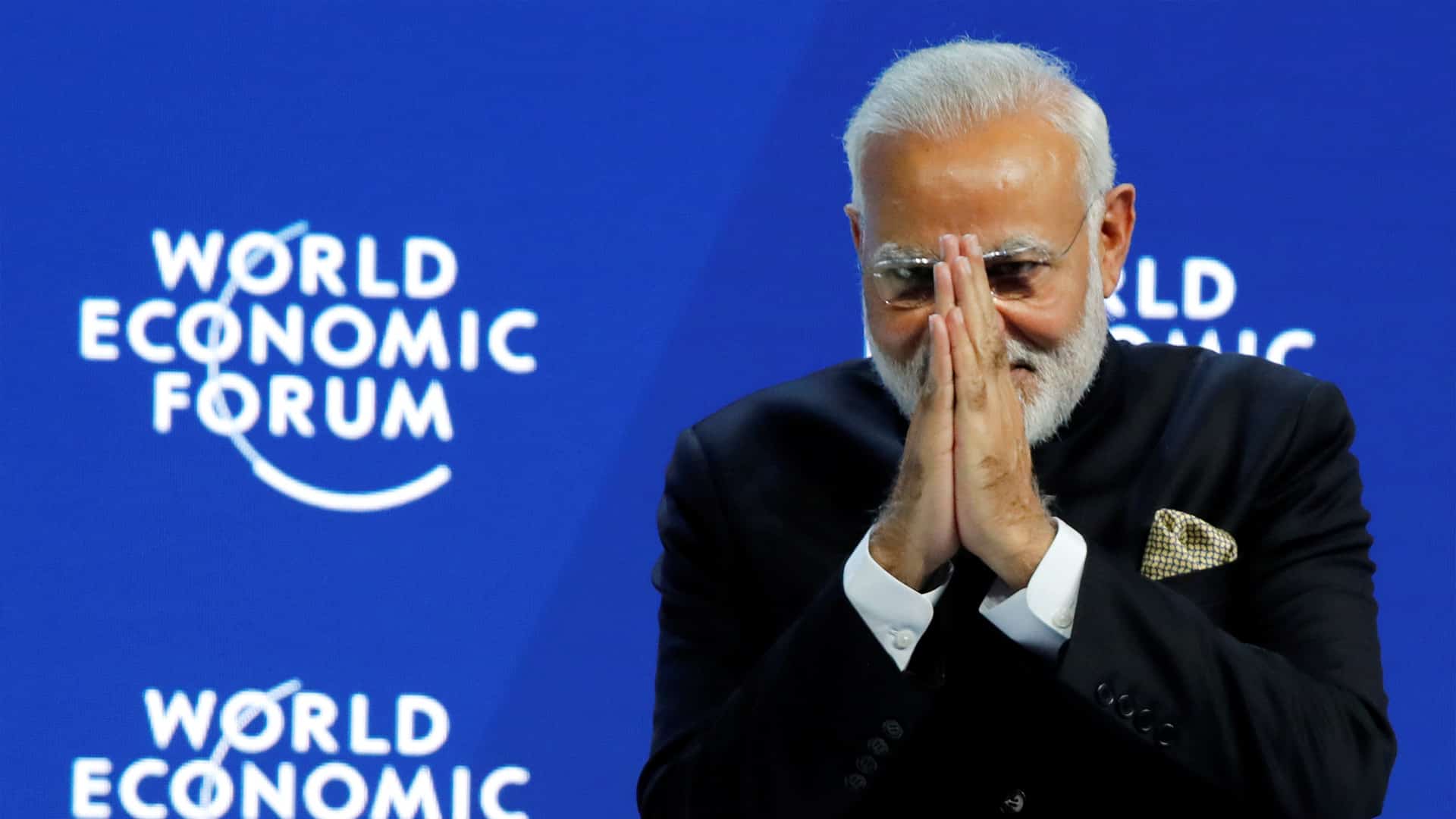Business
WEF to host online Davos Agenda summit next week; PM Modi’s address on Monday
Prime Minister Narendra Modi will address the online Davos Agenda summit of the World Economic Forum on the first day of the five-day event beginning January 17, joining a host of other global leaders who will share their visions for 2022 on the state of the world.
While the WEF had to defer its physical annual meeting in the Swiss ski resort town Davos due to the coronavirus pandemic, it will host the ‘Davos Agenda’ summit digitally for the second consecutive year in the previously scheduled week for the event. It hopes to convene the 2022 annual meeting later this year. Announcing the schedule, the WEF said ‘Davos Agenda 2022’ will be the first global platform for key world leaders to share their visions for 2022 and it is being convened on the theme of ‘The State of the World’.
Also read: PM Modi to hold interaction with more than 150 startups tomorrow
Heads of state and government will join CEOs and other leaders for a virtual week-long dialogue on critical collective challenges and how to address them, while this dialogue will be a springboard to the Annual Meeting in Davos, scheduled for early summer.
In addition to Modi, the world leaders delivering ‘State of the World’ special addresses will include Chinese President Xi Jinping, German Chancellor Olaf Scholz, Japan’s Prime Minister Kishida Fumio, United Nations Secretary-General Antonio Guterres, European Commission President Ursula von der Leyen, Australian Prime Minister Scott Morrison, Indonesian President Joko Widodo, Israeli Prime Minister Naftali Bennett, US Treasury Secretary Janet L Yellen, and Nigeria’s Vice-President Yemi Osinbajo.
Listed sessions include those related to COVID-19, technology cooperation, global social contract, vaccine equity, energy transition, climate innovation, restoring trust in world trade, global economic outlook and building future preparedness. Geneva-based WEF, which describes itself as an international organisation for public-private cooperation, said radically different pandemic experiences have exacerbated global divisions, while vaccine inequities, combined with new strains, have also slowed international economic recovery.
However, COVID-19 is only one of the critical global challenges which may become unmanageable unless world leaders prioritize proactive collaboration and therefore the Davos Agenda will focus on driving concerted action among key global stakeholders, it added. Klaus Schwab, Founder and Executive Chairman of the World Economic Forum, said, “Everyone hopes that in 2022 the COVID-19 pandemic, and the crises that accompanied it, will finally begin to recede. But major global challenges await us, from climate change to rebuilding trust and social cohesion.
“To address them, leaders will need to adopt new models, look long term, renew cooperation and act systemically. The Davos Agenda 2022 is the starting point for the dialogue needed for global cooperation in 2022. Through special addresses and panels with leaders of G20 economies and international organisations, the Davos Agenda 2022 will provide crucial insights into a range of critical challenges. Participants will hear first-hand how these leaders will drive action in these and other areas, the WEF said.
The summit will also mobilize government and business leaders, international organizations and civil society to share their outlook, insights and plans relating to the most urgent global issues such as climate change, social contracts and vaccine equity. These sessions will also provide a platform for a wider connection, enabling the global public to engage and be included in the conversation.
The world leaders expected to attend the event include WHO Director General Tedros Adhanom Ghebreyesus, IMF Managing Director Kristalina Georgieva, Special Presidential Envoy for Climate of the US John F Kerry, European Central Bank President Christine Lagarde and WTO Director General Ngozi Okonjo-Iweala. The Davos Agenda 2022 will also mark the launch of several WEF initiatives to accelerate the race to net-zero emissions, the economic opportunity of nature-positive solutions and cyber resilience.
Other launches on a diverse range of critical topics will also take place between January 17-21 and these include strengthening the resilience of global value chains, building economies in fragile markets through humanitarian investing, bridging the vaccine manufacturing gap and using data solutions to prepare for the next pandemic.













































Pingback: PHDCCI for removing customs duty on copper concentrate in Budget